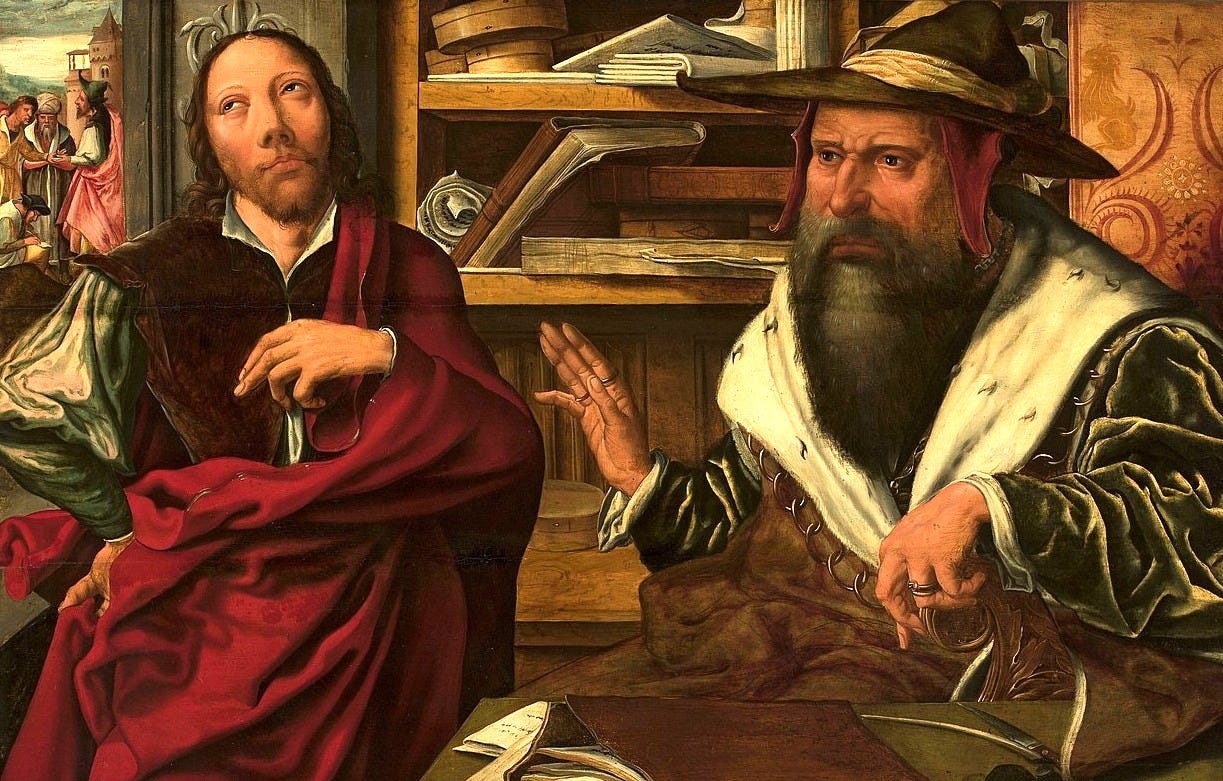Trying to serve God and Mammon is impossible
Everything we have is held on trust from God. While that means that the goods of this world are not true riches, they will decide what we are fit to receive in eternity.

Everything we have is held on trust from God. While that means that the goods of this world are not true riches, they will decide what we are fit to receive in eternity.
Editor’s Notes
In this part, Fr Coleridge tells us:
How every gift entrusted to us is a test of fidelity to our eternal purpose.
That worldly goods pass away, but spiritual gifts can become part of our very being.
Why we cannot deceive ourselves into serving both God and Mammon.
He shows us that our use of passing things decides whether we are fit to possess what truly endures.
For more on the context of this episode, see Part I.
The Unjust Steward
The Preaching of the Cross, Part II
Chapter X
St. Luke xvi. 1-13
Story of the Gospels, § 115
Burns and Oates, London, 1887
Discourse after the parable
Our Lord appears to have added to the simple narrative of the parable, or history, of the Wicked Steward, a discourse on the subject of true and false riches, and their use, of which St. Luke gives us a very succinct account, and which attracted the attention and criticism of the Pharisees.
‘He that is faithful in that which is least, is faithful also in that which is greater, and he that is unjust in that which is little, is unjust also in that which is greater.
‘If then you have not been faithful in the unjust mammon, who will trust you with that which is the true? And if you have not been faithful in that which is another’s, who will give you that which is your own?
‘No servant can serve two masters, for either he will hate the one and love the other, or he will hold to the one and despise the other. You cannot serve God and mammon.’
This discourse may be considered as addressed to the disciples in general, and to contain principles which apply to a larger range of subjects than is suggested by the use of the word mammon only.
The first lesson which is conveyed in this passage is one which grows naturally out of the story of the unjust steward. It is that we are all stewards, and have a Master over us to Whom we have to give an account of all that we have and are.
The steward of whom we have just heard was accused of treating his lord’s gifts as if they were his own, for if they had been his own he could not have been called to an account, and threatened with punishment for malversation.
He had a right, if he so chose, to squander what was his own, and this is just the right which we falsely assume as to what is not our own. For all that we have in the way of powers, faculties, talents, opportunities, is committed to us by God with the intention that it is so to be used by us as a trust from Him for which we are to give an account, and for the purpose of preparing for ourselves treasures, or resources, in the next world.
‘True goods’
Again, there are three contrasts expressed in the words before us.
In the first place, there is the contrast between greater goods and lesser goods, as to which our Lord says that faithfulness in the case of the inferior grade of goods is an earnest of faithfulness in the use of the higher.
Then there is the contrast between true goods and false goods, true riches and false, as to which He says that if we have not been faithful in the unjust mammon we shall not have committed to us the true.
In the third place there is the contrast between that which is another’s and that which is our own, as to which He says, that if we have not been faithful in taking care of the property of another, who will give us that which is our own?
We have, therefore, to see how these three contrasts may be made to apply to the goods of which our Lord is speaking.
Father Coleridge Reader is a labour of love. But curating, cleaning up and publishing these texts takes real work.
To keep this project going, and to make more of this treasury available, we rely on reader support. Some posts are reserved for members to sustain this project.
We’re trying to keep something precious alive. To see more, see our ‘Manifesto.’
If you’ve benefited, consider joining us as a subscriber. It makes a real difference.

